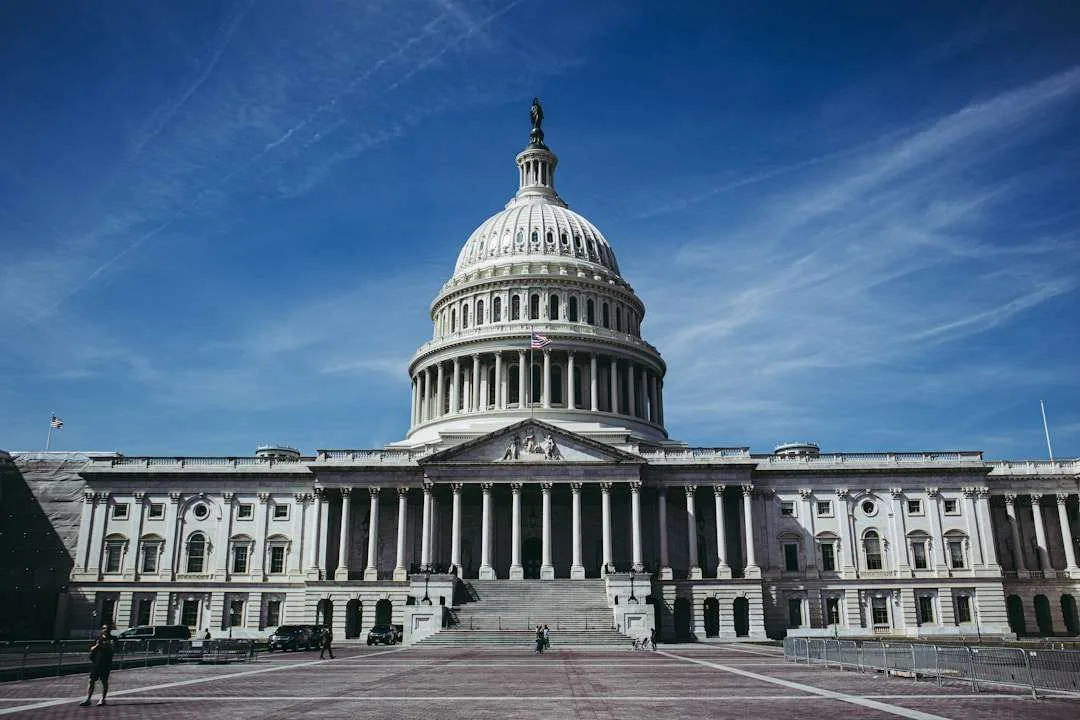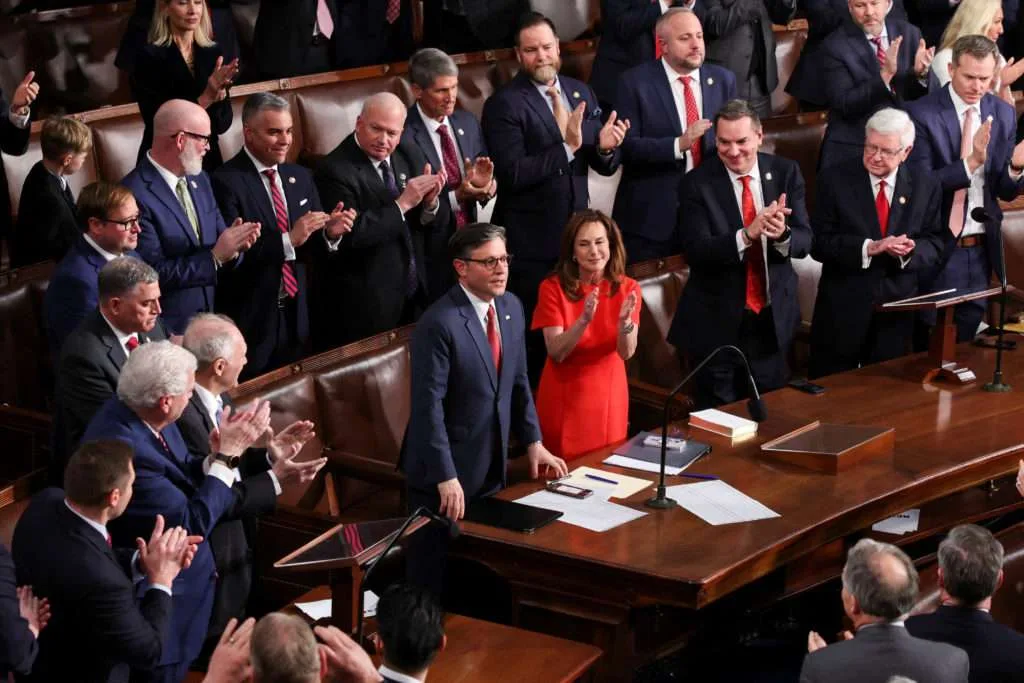As the United States embarks on a new legislative journey, the political landscape is witnessing significant shifts. The re-election of Mike Johnson as House Speaker marks a pivotal moment for the Republican Party and sets the stage for the next two years of governance. With an “America First” agenda at the forefront, Johnson’s leadership will be instrumental in shaping policy and advancing President Trump’s objectives.
In a dramatic and closely watched vote, Republican Mike Johnson was re-elected as House Speaker with a narrow margin of 218-209. This victory underscores the delicate balance of power within the Republican Party and highlights the challenges Johnson faces in maintaining party unity. Despite initial opposition from hardliner GOP members and concerns over his leadership in bipartisan budget negotiations, Johnson emerged victorious after securing crucial support from President-elect Donald Trump.
Johnson’s campaign was not without its hurdles. Two notable holdouts, Ralph Norman and Keith Self, initially withheld their votes due to concerns over budget negotiations. However, strategic lobbying efforts and Trump’s endorsement played a pivotal role in swaying these votes, ultimately securing Johnson’s position.

Johnson has pledged to prioritize an “America First” agenda. This includes key initiatives such as border security, tax cuts, and reduced government spending. By aligning closely with President Trump, Johnson aims to advance policies that resonate with conservative values and address pressing national issues.
One of Johnson’s immediate priorities is to move a budget resolution in “early January” to further President Trump’s agenda. This move is expected to set the tone for fiscal policy debates and shape the legislative landscape for the coming year. Additionally, Johnson has promised to create a working group focused on reviewing federal agency audits and promoting fiscal responsibility—a commitment that aligns with his broader goal of reducing government expenditure.
The House has adopted new rules that could significantly impact legislative processes. Among these changes is a higher threshold required to oust the speaker, providing Johnson with greater stability in his role. Additionally, restrictions have been placed on the use of suspension of the rules—a procedural tool often used to expedite legislation.
These changes reflect a strategic effort by Republicans to consolidate power and ensure smoother governance amidst potential internal conflicts. By strengthening procedural safeguards, Johnson aims to mitigate risks associated with dissenting voices within his party and maintain focus on advancing key legislative priorities.
Despite securing his position, Johnson faces ongoing challenges in navigating a divided political landscape. His “weak grip on the gavel,” as some analysts describe it, poses risks to both his survival as speaker and President Trump’s ambitious agenda. The narrow margin of control Republicans hold over the chamber underscores the potential for heated battles over legislation in the upcoming year.

Moreover, as Trump prepares to return to the White House with GOP control over both the House and Senate, expectations are high for swift action on campaign promises. This dynamic places additional pressure on Johnson to deliver results while managing internal party dynamics.
Several key questions emerge: How will Johnson navigate intraparty divisions while advancing an ambitious legislative agenda? What impact will procedural changes have on legislative efficiency? And how will Republican control over Washington shape policy outcomes?
The answers to these questions will unfold over time as Johnson leads the House through complex policy debates and legislative negotiations. With majorities in both chambers, Republicans have a unique opportunity to implement their vision for America.










